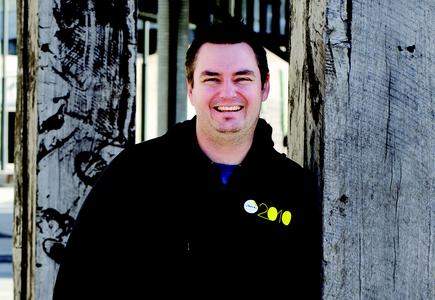Trade Me: How to build a data-driven culture
- 02 December, 2015 06:30

Being a “very open and transparent business” is important in building an organisation that values data and using it to make decisions, says Dave Wasley, head of platform and operations at Trade Me.
“One of the things we have here is: Try stuff and if you fail, that is fine. Learn from it, but keep on doing things, keep innovating.
“And by putting the power of that data in people’s hands they can see those failures and successes really quickly and try something different and keep moving," says Wasley, who is one of the ICT leaders interviewed by CIO New Zealand for a special report on 'Thriving in a data-intensive world'.
He recalls that when
Trade Me started, then CEO Sam Morgan ran a spreadsheet every morning, plugging
data to analyse what has happened the night before.
They still continue to run this spreadsheet, but Trade Me also actively uses a raft of business intelligence and analytics tools.
He says they are dealing with big data sets, and getting access to it in real time and making it easier for the users is very important.
“The data is up on the screen on the walls,” says Wasley.
If you would do a priority list, I would say, people, data and technology – in that order.
“If you have dashboards that are available and publicly visible, then you can make everyone data literate.
“People ask more questions, the more stuff you put in front,” adds Wasley.
From a management point of view, Wasley says he uses the insights for performance uptime and weekly reports.
“I don’t need to jump into spreadsheets, I just push a few buttons and I get a report. That provides me a high level view of performance, of how our operations are working.”
In the payments part of the business, for instance, there are dedicated dashboards with the metrics that are important to this particular team.
“They can see transactions going through our payments platform in real time, they know any errors that are showing, to what gateways that traffic is going through.
“In a business like ours that makes systems changes numerous times in a day, they get visibility under the hood about what is happening.
Suhel Mangera, chief data analyst at Trade Me, says right from get go the company has been data driven and interested in making decisions based on what is happening on actual facts.
“One of the key messages to CEOs, CIOs and CTOs is you have got to establish a culture that makes the whole organisation data driven.”
Mangera says the BI team has in the last 18 months been building an “amazing” data warehouse.
“It is an ongoing process,” he explains. “Our core driver there is one source of the truth that holds as much of the data that we need to understand how the business is performing.
“We are exposing those with web dashboards and making that easily available pretty much to anyone that wants to get a look at the data.
“We have weekly KPIs that run off that and anyone can jump off the dashboards and have a look at how the business is performing right now.”
Wasley says it is interesting how the developers, business analysts and test team access data all the time to make decisions on what they are building and how they are building it.
“We don’t have that responsibility of that data within one, two or three people who then make a decision and tell people what to do. We empower our people to use the tool and use the data that is around them, so that they are able to make decisions quickly and try stuff.”
Mangera says the developers, for instance, were quickly able to see which version of the page was actually converting more people into terms of shopping cart completion, as well as getting more items added to a cart.
“We made a decision within three to four days after releasing it and they did not have to cut code or rely on an analyst to get those numbers and get those insights.”
Having the right people is key when working on business intelligence tools, says Wasley. “You can throw tools at people, you can have big data warehouses but if you don’t have people that are inquisitive and are interested in data, then you are never going to get value out of it.

You can throw tools at people, you can have big data warehouses but if you don’t have people that are inquisitive and are interested in data, then you are never going to get value out of it.
“From the beginning, we ask people to be inquisitive,” he adds. “You want to ask questions and not just accept that is how it is and understand it, and make decisions based on facts.”
Mangera says, “If you would do a priority list, I would say, people, data and technology – in that order.”
“You will need amazing people that love working with data, telling great stories out of that data to business users.
Wasley says some good questions to ask staff are: Why did you make that decision? Can you show me how these things have changed? Why is that better?
“If they say it will make the site go faster, or it is going to convert (buyers) better, we say, where is the evidence?”
Send news
tips and comments to divina_paredes@idg.co.nz
Follow Divina Paredes on Twitter: @divinap
Follow CIO New Zealand on Twitter:@cio_nz
Clickhere to read the Spring 2015 issue of CIO New Zealand
Sign up for CIO newsletters for regular updates on CIO news, views and events.
Join the CIO New Zealand group on LinkedIn. The group is open to CIOs, IT Directors, COOs, CTOs and senior IT managers.

